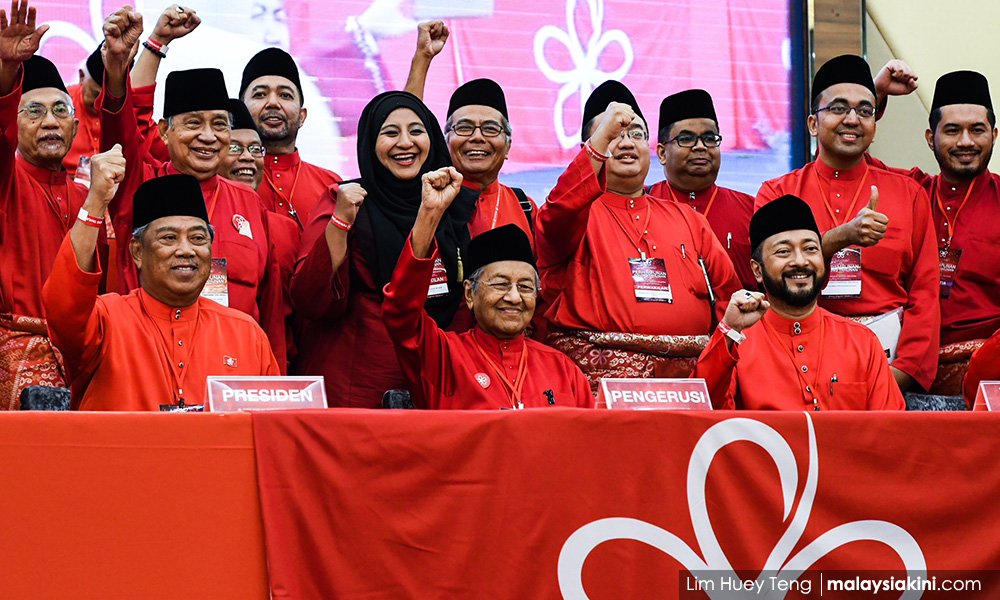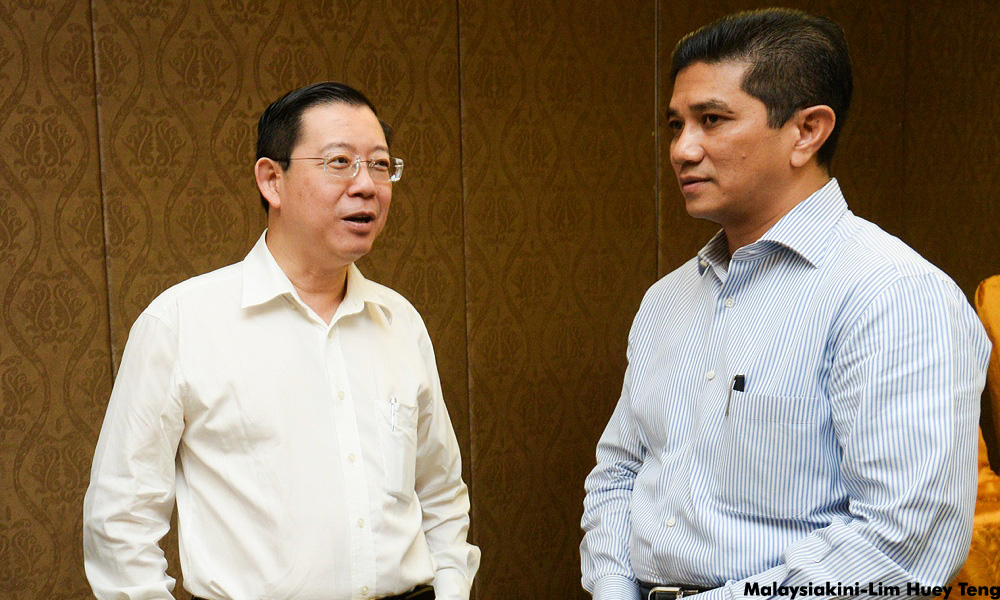COMMENT | Agora Society congratulates Pakatan Harapan for releasing its GE14 manifesto “Buku Harapan” that embodies significant reforms such as the decentralisation of federal power, abolition of draconian laws, electoral reforms, the introduction of EPF contributions for housewives and an anti-sexual harassment bill.
However, we regret to note that the “Buku Harapan” also shows complex characteristics of populist, welfarist, reformist and racialist elements that compartmentalise Malaysians along racial lines.
The 203-page manifesto has mentioned in total 25 times the term “bumiputera”, 35 times “Malays”, five times “Chinese”, 48 times “Indian” and 24 times “Orang Asal”.
Also, many preferential social and economic policies for bumiputera were openly stated.
On the contrary, then Pakatan Rakyat’s “Orange Book” back in 2013 vowed to shift the focus of government policies from ones that are based on bumiputera equity to ones that aimed at increasing the household income of all Malaysians.
It also stressed that affirmative actions should be needs-based rather than race-based. The “Orange Book” also upheld the constitutional protection of Islam, the Malay language, the special position of Malays and the monarchy, and most of its policies were based on universal rights for all citizens and classes.

Harapan's GE14 manifesto indicates the dominant role of Bersatu in the coalition.
In spite of being the smallest and newest partner, not only has Bersatu been given the most number of candidates to contest parliamentary seats in Peninsular Malaysia, including the prime ministerial candidate, the manifesto has also not shied away from echoing many of Bersatu’s demands.
It appears to us that Harapan attempts to portray itself as a bumiputera-dominated coalition in order to woo the support of the conservative voters among Malay Malaysians in effecting regime change.
But this racialised strategy will inevitably reshape Harapan’s ideology into one that bears more resemblance to that of BN as both now accept Malay supremacy as the unwritten constitution of the country since 1969.
This compromise comes with a price. The racialisation of the Harapan manifesto marks the demise of new politics that emerged 1998 where people’s power, social justice and human rights for all were the main themes.
Whither local government election?
The new manifesto has also dropped DAP and PKR’s past promises altogether of restoring local government elections and instead replaced it with only pledges to strengthen the existing appointee system practised in Selangor and Penang by increasing accountability and to allocate seats for civil society organisations.
Both state governments have either halted their efforts or shown hesitation in pursuing this matter.
The Penang state assembly's effort in pushing for local government elections in 2012 ended with the federal court's ruling in 2014 against the Penang state government in that it has no right to conduct local elections. There has been no subsequent action taken to continue this fight.
The Selangor state government has, on the other hand, shown hesitation to reinstate local elections by stating concerns over probable ethnic-compositions in a city or municipal councils of which the proponent is PAS.
As PAS is no longer a constituent of Harapan, the agenda of the local elections should come back to the negotiating table. Yet it is missing from the manifesto. A full explanation from Harapan is in order.
Perhaps Harapan could borrow a leaf out of the manifesto of the 99 percent in this regard.
Transitional justice
We are also aware that the opposition is selectively condemning wrongdoings by demanding accountability from the Najib administration but is conveniently silent on those committed by the previous administration.
This is a stance that the opposition parties had previously advocated for decades before Dr Mahathir Mohamad had officially affiliated with the opposition in 2016.
As Harapan is aiming for the first regime change at the federal level in Malaysian history, it is crucial for it to pursue transitional justice.
The opportunity presented by regime change must be seized to respond to injustices, to seek to remedy the harms caused and for the perpetrators to be brought to justice.
Therefore, we call upon Harapan to set up a transitional justice commission once elected to power.
The commission should investigate the scandals listed by their “Buku Harapan” and also include Operasi Lalang, the Memali tragedy, the BMF and forex scandals, thee persecution against “reformasi” activists, the murder of Teoh Beng Hock and the mass arrest of Bersih 2 activists.
If Harrapan is truly committed to advocating for political accountability, the proposed transitional justice commission will be the best measure to show that it has renounced dictatorial practices and embraced accountability.
Walk the talk on CM term limit
Harapan supports a two-term limit for the positions of prime minister, menteri besar and chief ministers but exempting the incumbent Penang Chief Minister Lim Guan Eng and Selangor Menteri Besar Azmin Ali is at best confusing.

In fact, the term limit restriction should also be imposed on Mahathir who held the post of prime minister since 1981 for four terms – 1982-1986, 1986-1990, 1990-1995 and 1995-1999 – for over 22 years.
The refusal to impose the same restriction on Lim Guan Eng, Azmin Ali and Mahathir Mohamad also imply that rules are not meant to be applied equally and that more powerful political figures are entitled to privileges not enjoyed by others.
This decision directly defeats the purpose of the term limits to prevent accumulation of power and curb the abuse of power by the few which was well exhibited during Mahathir’s 22-year rule.
We urge Harapan to stay true to its original course and live up to its promise by bringing about institutional reform that can help shape our country into a more democratic and just nation where good governance is the norm and where people enjoy freedoms and rights equally.
THE AGORA SOCIETY is a loose network of intellectuals, writers and activists who advance democratic progress in Malaysia through critical analyses and propositions based on the principles of democracy and good governance.
The views expressed here are those of the author/contributor and do not necessarily represent the views of Malaysiakini.

